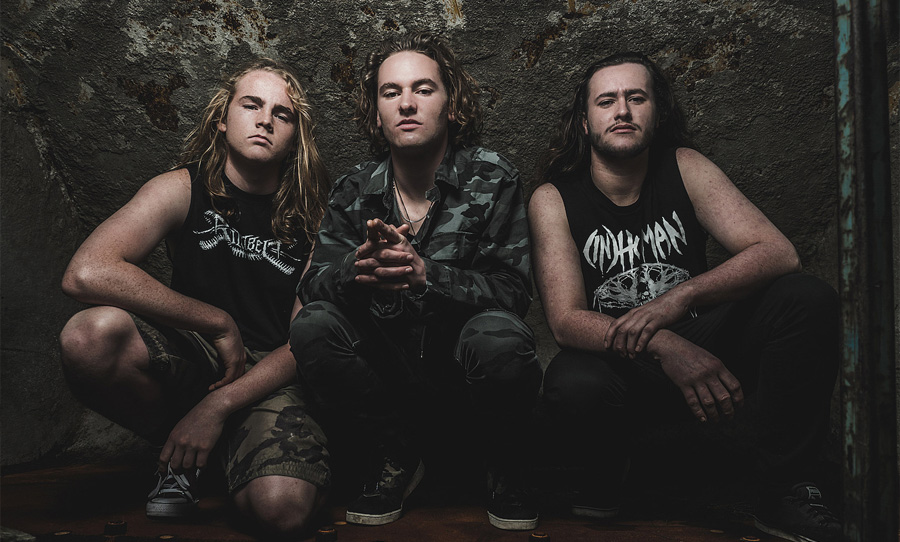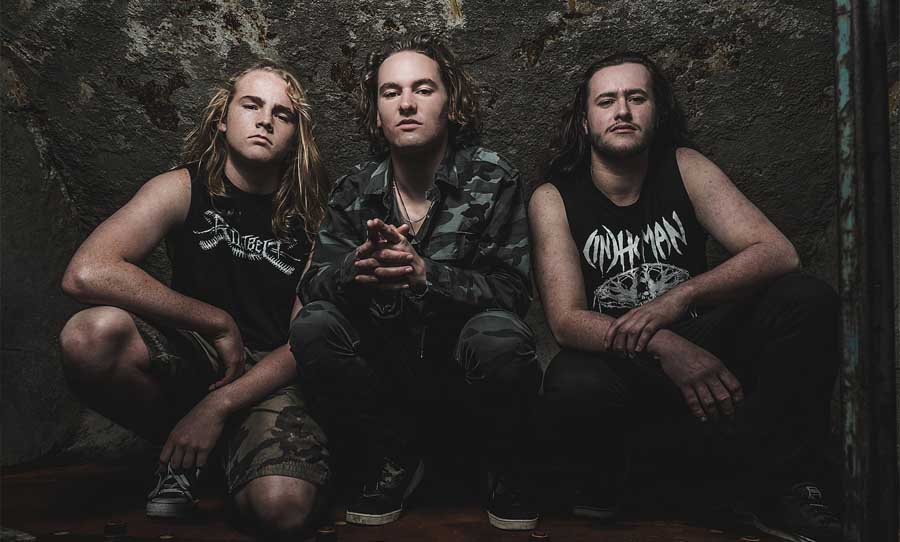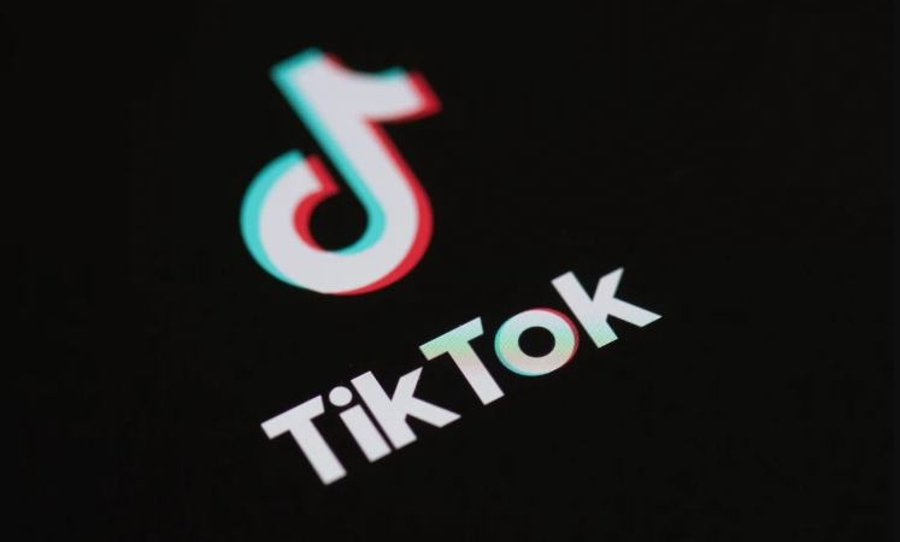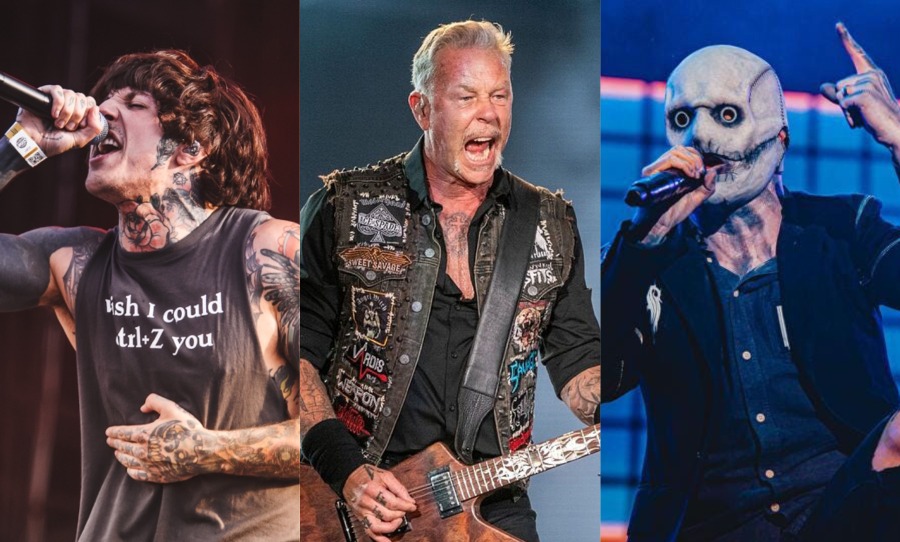Meet Ethan Trembath and brothers Henry and Lewis de Jong, the three teenagers who make up Alien Weaponry. Hailing from Waipu, a town in northern New Zealand, they’re one of the only contemporary bands, and perhaps the only thrash metal band in the world, to sing in Māori.
Their debut album Tū, named for their Māori god of war Tūmatauenga, is back-to-back with hymns for violence, history and rage. Alien Weaponry aim to bring these, some would say, horrific times in their country’s history to light through song, rather than burying them and acting like they never happened.
Ahead of the trio’s Australian performance at Download Festival in March 2019, we spoke to bassist Ethan.

Thrash metal never sounded as powerful as from the throats of Alien Weaponry, a group of teenage New Zealanders telling the stories of their native people.
HAPPY: Hey there!
ETHAN: Hey bro.
HAPPY: Where have I caught you?
ETHAN: We’re just at Lewis and Henry’s place in Waipu, it’s where we do band practice and stuff.
HAPPY: Alright – so your band sings in Māori, obviously. It’s interesting for me because at the moment, there are a few Aboriginal Australian acts also singing in their native tongue….
ETHAN: Oh awesome!
HAPPY: Yeah it’s mad, and for the first time they’re becoming quite successful. Are there any other contemporary bands singing in Māori?
ETHAN: Well there are plenty of bands that sing in Māori, but not too many that are playing metal and singing in Māori.
HAPPY: Right.
ETHAN: I suppose… I have heard of people who say they’ve tried it, but as far as I know we’re the only band that’s actually doing that. It’s always good to hear bands sharing their culture and singing in their native tongue, it’s great.
HAPPY: It’s interesting that’s it’s across everything. The Australians I mentioned, one’s a rapper and one’s a group of electronic artists.
ETHAN: Yeah man, that’s good. Whatever you’ve got.
HAPPY: Why do you think there are so few metal bands? You said you’re the only ones really embracing the language.
ETHAN: I mean, we’ve always really thought… once we wrote a song in Māori we thought “man, that sounds great”. We’ve never really known why nobody’s done it before. So, I guess we were just lucky enough to stumble across the idea and execute it. And it’s going well for us, so we’re going to keep on doing it because we like the sound, it’s a really good way of getting our feelings across and sharing stories.
HAPPY: Are you hoping to inspire anyone else to do something similar?
ETHAN: Of course! You know, if another band in New Zealand started playing metal and singing in Māori, or whatever native language, that would be fantastic. It would be great if could inspire people overseas to do the same, you know? Imagine the whole of Germany speaking Māori. It would be such a great thing… it’s just getting our language out there.
HAPPY: On stage are you trying to teach your audience? Saying “this word means this”, or “the chorus means that”?
ETHAN: Before we play a song, like say Raupatu, we kind of tell the audience what it’s about, not necessarily what the words mean. We say “this next song is about a law that was passed by the colonial government in 1863”, so we don’t really teach them word for word, but we give them an idea of what we’re talking about.
HAPPY: At the same time though, doing something like this is unfortunately going to be controversial to a few people. Have you ever come up against any kind of resistance?
ETHAN: Well we’ve seemed to have 90% super positive feedback from people. Especially overseas, we’ve had next to no bad reception.
HAPPY: That’s awesome.
ETHAN: I guess the only negative comments and things have come from New Zealanders, which is ok, everyone can have their own opinion. At the end of the day we don’t see anything wrong with what we’re doing, we’re just trying to inspire people to do their own thing.
HAPPY: I also wanted to ask, what does the band name mean?
ETHAN: It’s a funny story really. Louis was eight years old and Henry was ten, they watched District 9… they watched that and thought “Alien Weaponry, man that would be a great name for the band”. So that’s how Alien Weaponry got started. Then two years later I came along, and now we’ve come to realise that it kind of relates to the introduction of muskets to New Zealand, this ‘Alien Weaponry’ that changed New Zealand forever.
HAPPY: That’s kind of cool, it’s like it was meant to be. It seems like war and violence are really important to the band… what is it about war that’s most interesting to you?
ETHAN: Yeah, there’s definitely a recurring theme with what we talk about in our songs. Conflict. Not only does it go really well with the haka sound and that aggression, but thrash metal seems to be quite political sometimes. I guess we’re just passionate about getting the stories out there, because a lot of people seem to be quite silent in that area. A lot of not-so-great things happened, you know, that shit’s dodgy. But knowing that it did happen and moving on…
HAPPY: Nice, it’s the same over here. We need more people keeping it alive.
ETHAN: Yeah.
HAPPY: You mentioned the haka, do you incorporate any other Māori war traditions into the band?
ETHAN: Well before we go on stage we do the haka. That’s part of our performance. We try not to put on face paint and do the whole theatrics thing, you know. We kind of do our own thing on stage, just try to have fun. But the haka sound definitely comes through in our music more than our performance.
HAPPY: I wanted to ask, is Scandi or Viking metal an influence? You know, despite being from across the world there’s a lot of crossover with the idea of a Māori metal band.
ETHAN: Yeah yeah, definitely. When I first joined Alien Weaponry I hadn’t really heard of metal and one of the first things I checked were the most extreme forms, like Viking metal, and I was really intrigued by that. You can say that it was a bit of an influence, it was kind of comforting to know that other people out there had combined their culture with metal. For us, it was kind of an accident.
HAPPY: You’re signed to a three record deal, right?
ETHAN: Ya.
HAPPY: You must be thinking of the next two already. Are the upcoming records going to be covering those similar territories of conflict and war?
ETHAN: We’ve already got into the songwriting process of it. We just write our songs by whatever we’re feeling passionate about at the time, you know those pretty incredible stories that happened in the past. I’m sure they’re not going to go anywhere and we’re going to write songs about that stuff, but I don’t know, we tend to also write about more personal feelings or more personal stories as well. But I’m guessing that it’s still going to a very different album from the first.
HAPPY: Nice. Now you’re coming over to Australia for Download Festival, which has a pretty huge name overseas but not here yet. Are you excited to come along?
ETHAN: Yeah man, definitely. Seeing those other massive bands on the roster is so good, seeing Ozzy! Looking forward to that.
HAPPY: It’s in this great place because people have been talking about it coming to Australia for more than two years I think. And for a while we’ve had this massive lack of heavy music festivals. What’s it like in New Zealand, are there events for bands like yourselves to play bigger crowds?
ETHAN: There’s not so much opportunities for metal bands to play in front of a bigger crowd like that. Back in the day we had Westfest but that stopped running about three years ago, so not so much. We tend to play the more mixed-genre festivals when we play festivals here. Right now we’re definitely in our environment when we’re playing overseas.
HAPPY: Kind of a similar situation here, we had this big festival called Soundwave cancelled a few years back. Now Download is here and everyone is super psyched.
ETHAN: Yeah, that’s great.
HAPPY: You mentioned the overseas thing, there are so many great heavy festivals over there. You’ve played a bunch yourselves, any highlights?
ETHAN: As far as Europe goes, it was our dream for six years to play at Wacken. Right from day dot we made a gamble to play Wacken by the time Henry was 20, and we played there when Henry was 18. So that was awesome, to be able to achieve that goal. Metaldays as well, that was an awesome festival, it was a real beautiful place. That was great because it was actually our first gig that we were booked on in Europe, so that kicked it all off for us and we had a great crowd there.
HAPPY: Hell yeah. One thing to finish it off… you’re the third member in a band with two brothers, does that ever get tough?
ETHAN: Oh yeah, on the odd occasion we have little fights or whatever, but you can expect that from brothers. I seem to be the mediator, or the one that tells them to shut up. You know, they’re definitely getting better, but they’re definitely not perfect yet. Getting there.
HAPPY: Well, it sounds like you guys are going to have plenty of time to practice.
ETHAN: Yeah man.
HAPPY: Well, awesome. Good luck with it all, and thanks for the chat.
ETHAN: Thanks, have a good one!
HAPPY: Likewise.
Witness Alien Weaponry for yourself at Download Festival Australia:
Sat 9 March – Parramatta Park, Sydney – Tickets
Mon 11 March (long weekend) – Flemington Racecourse, Melbourne – Tickets



